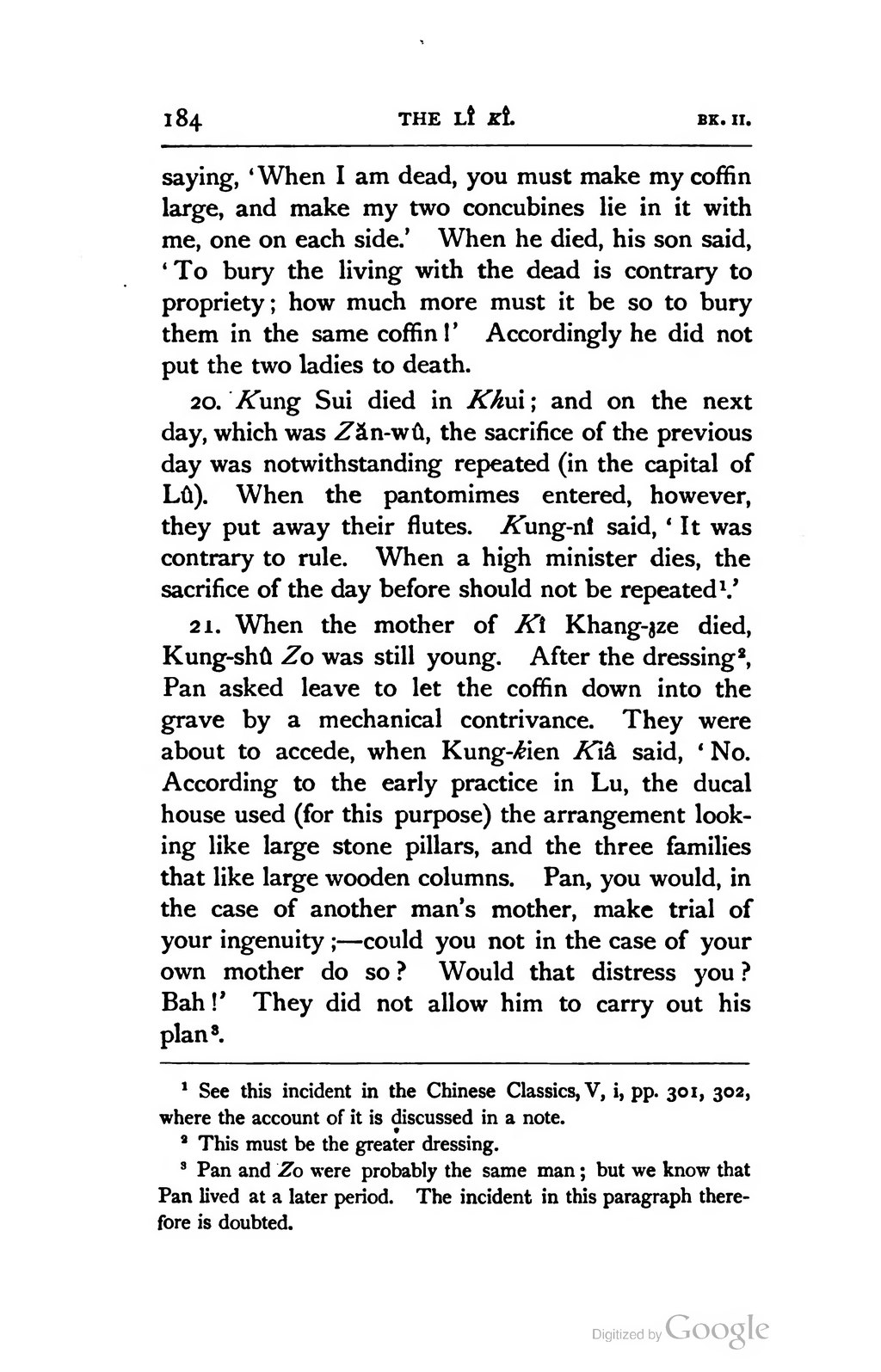saying, "When I am dead, you must make my coffin large, and make my two concubines lie in it with me, one on each side." When he died, his son said, "To bury the living with the dead is contrary to propriety; how much more must it be so to bury them in the same coffin!" Accordingly he did not put the two ladies to death.
20. Kung Sui died in Khui; and on the next day, which was Zǎn-wû, the sacrifice of the previous day was notwithstanding repeated (in the capital of Lû). When the pantomimes entered, however, they put away their flutes. Kung-nî said, "It was contrary to rule. When a high minister dies, the sacrifice of the day before should not be repeated[1]."
21. When the mother of Kî Khang-jze died, Kung-shû Zo was still young. After the dressing[2], Pan asked leave to let the coffin down into the grave by a mechanical contrivance. They were about to accede, when Kung-kien Kiâ said, "No. According to the early practice in Lu, the ducal house used (for this purpose) the arrangement looking like large stone pillars, and the three families that like large wooden columns. Pan, you would, in the case of another man's mother, make trial of your ingenuity;—could you not in the case of your own mother do so? Would that distress you? Bah!" They did not allow him to carry out his
plan[3].
